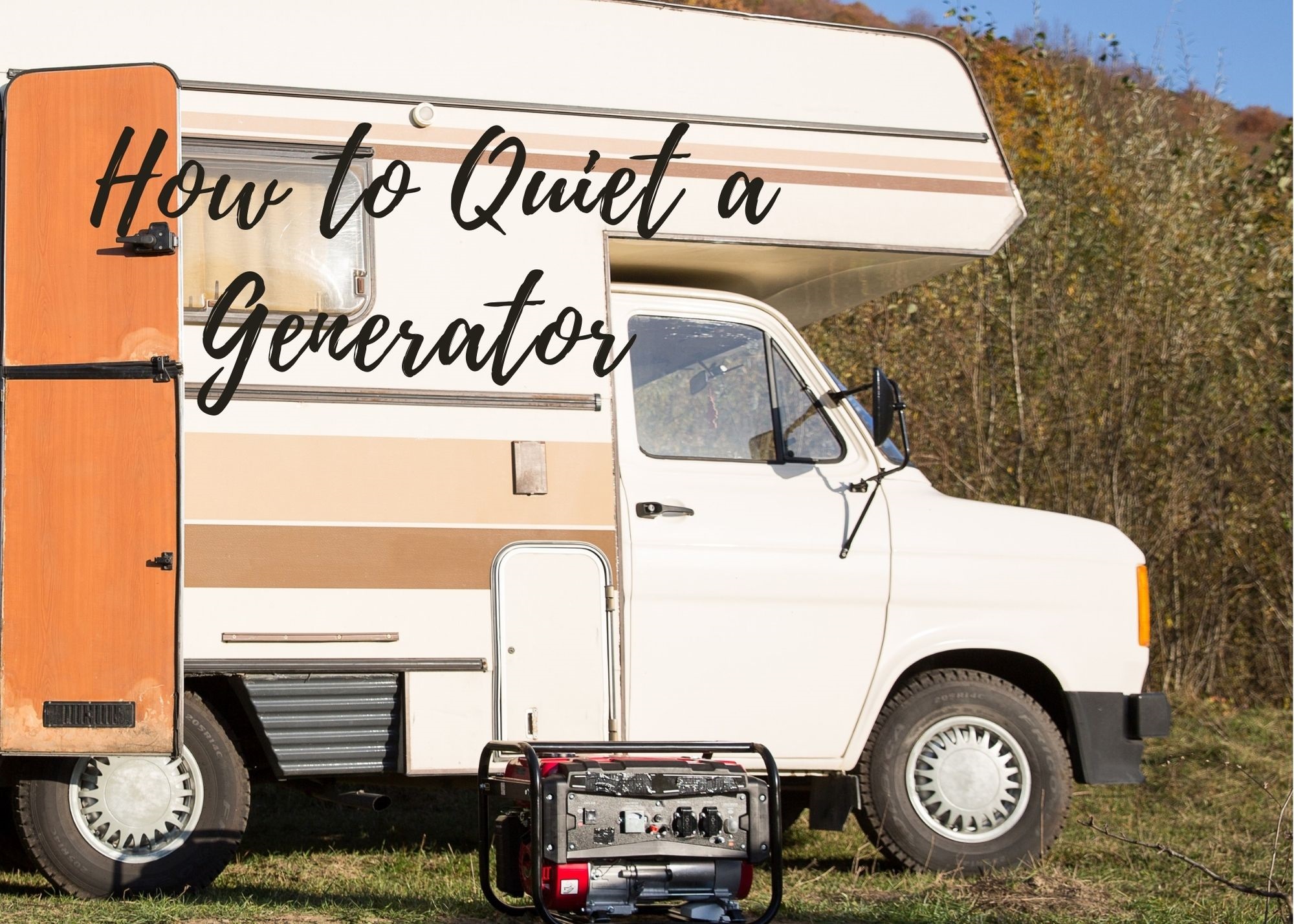How to Make a Generator Quiet for Camping or at Home
With the unexpected increase in severe weather, we all know how crucial having a generator is these days. There is a substantial risk of a power outage in my neighborhood due to a significant volume of freezing rain expected overnight. For some people, having a generator is important, especially if they have children. The major issue with most generators, though, is the amount of noise they produce. In this essay, I’ll go through some methods for making a generator quiet for camping and residential use.
How can I make a camping generator quieter? Building a quiet generator box is the greatest technique to make a generator quieter for camping and at home during a power outage. By following the link, you can learn how to create your own DIY generator silent enclosure.
There are, of course, other ways to make a generator quieter so that it does not annoy others. I’ll also discuss the various types of generators and how to make both traditional and inverter generators quieter.
Here are some suggestions for making your generator as silent as a cricket!
How to make a Generator as Quiet as a Cricket
Small engines, such as those found in generators or air compressors, are much louder than large motors seen in automobiles for a simple reason. An automotive engine is comprised of a thick, heavy material with a high-volume oil system that is pressured. They are liquid cooled, which prevents the engine from overheating. Small engines, on the other hand, are built of a lighter, thinner material that is splash lubricated and cooled by the air.
Small engine manufacturers could develop engines that were more quieter, but they would have to make them thick and hefty. I’m not sure how many folks would want to haul about an 800-pound lawnmower or a generator that heavy.
Here are some of the greatest recommendations for making a generator quiet for camping and at home.
1. Soundproof Enclosures That Can Be Taken With You
You can buy a soundproof enclosure for your generator from online stores or your local generator supplier. A soundproof box is a waterproof and movable soundproof container. When using your generator on a camping vacation, it will be significantly quieter.
For easy storage, this box can be collapsed. Users say it can minimize the noise from your generator by up to 5X or 99 percent.
2. Using Plywood Boards as Sound Deflectors to Muffle Generator Noise
Another successful approach to minimize the noise levels of your generators is to install sound deflectors. A sound deflector is a device that helps to direct the level of noise away from a certain region. It’s a worthwhile purchase to put in regions where you don’t want to hear generating noise.
This device does not soundproof your generator or lower the amount of noise it produces; it only blocks the noise from reaching you. Sound deflectors are inexpensive and widely accessible. As a result, a sound deflector is an excellent short-term option. Shielding the noise from your generator with sheets of plywood is one of the quickest and cheapest solutions to lower the decibel levels.
You may minimize the noise level by at least 10 dB by placing plywood sheets around the generator. The ability to reduce the generator’s noise by ten dB will make it considerably more pleasant in a neighborhood setting or at a campsite where other tents or Rvs are in close proximity.
Then, in the shape of an enclosure box, you’ll place them against the generator. The noise from the generator will be deflected to the ground by this homemade plywood cage in the shape of an A-frame.
This allows the noise to be contained and absorbed into the ground instead of being directed at your surroundings.
3. Position the generators vertically or with the exhaust pipe facing away from your home
The placement of the generator’s exhaust pipes has a significant impact. They are blowing the air outside when they are turned horizontally, which also implies they are making the noise horizontally. However, if the pipes are in a vertical position, the sound will also go in that direction, making less noise as a result.
If relocating the generator father away from your home proves too difficult, there are still alternatives to reduce noise levels.
One simple solution is to turn the exhaust pipe away from your house, which in some situations might be the main source of noise.
Sound waves generated by noise will go in the direction it is facing, as you can surely imagine. When compared to having the exhaust directed directly toward your home, making the sound waves go away from your property can make a huge impact.
4. Place the generator far away from your house or camp location
We all know that the further away you are from a noise source, the less you will hear it. So, with a noisy generator, employ the same common sense technique. Always keep your generator at least 20 feet away from your camp when you go camping. Make sure the exhaust pipe is facing away from you as well.
Keep the generator out of the house, and make sure it’s not too close to the living room or bedrooms.
If you live in a rural region, it’s easier to keep your distance from the generator. In contrast to an urban development, the dwellings are not as close together.
At a distance of 20 feet, a typical generator will produce between 70 and 80 dB. The noise is loud enough for you to hear it clearly at 80 decibels.
You can move the generator further away from your house by utilizing a lengthy extension cord. If you have a detached garage or a storage shed, you could even move the generator behind one of these structures.
5. Store the generator in an outbuilding
If you have a long enough extension cord and the storage shed is close enough to your house, you could put it there.
When doing this, there are two things to consider: the echo and the fumes.
The echo: If you put the generator in a reasonably empty shed, the sound waves will bounce about on the empty walls, causing a large quantity of echo. Placing acoustic panels on the walls and ceiling of the shed or other enclosure is one way to avoid echo.
If you’re worried about the generator overheating, you may easily install a fan inside the shed to keep it cool. Battery-operated fans can be found for a cheap price on the internet.
Fumes: The vents are about six inches in diameter, which I believe will be sufficient to handle any fumes generated by the generator. If you don’t have any ventilation, you can join a muffle type hose to the existing muffler’s end and have it exit the barn through a small door opening or, better yet, a hole in the wall designed specifically for this pipe.
Soundproofing is an excellent choice for reducing noise levels in an outbuilding. When it comes to soundproofing, open holes are the most common problem, but don’t take this too seriously because it’s nearly difficult to eliminate them altogether.
Generators require adequate ventilation to avoid catching fire. Make sure you don’t forget to regulate the airflow when working with noise levels.
6. Sound Absorbing Mat
Not all of the loud noise coming from the generator comes from the motor and moving elements; noise might also originate from the generator’s vibration.
Another option is to use rubber to cover the generator’s feet. It will reduce the vibrations generated by generators when they are running. It will eventually result in a reduction in noise levels. Placing your generator on a soundproof mat will also help to prevent noise pollution.
Another fantastic way to quiet your generator is to use anti-vibration pads or a rubber mat which serves as padding underneath the machine. Place the generator on top of a thick piece of sound-absorbing mat to absorb the vibrations and, ideally, reduce the noise level by a few decibels.
7. If the generator’s muffler is faulty, replace the muffler or get a bigger muffler.
The muffler is another mechanical component in your generator that makes unpleasant noise. The purpose of mufflers is to reduce machine noise. A faulty muffler can cause havoc with your generators, even if they are working properly.
You might have a malfunctioning muffler if you’re stuck with an older generator that sounds a lot louder than it used to. Take your generator to a small engine repair to examine whether the muffler needs to be replaced.
8. Purchase and install a generator Silencer
Silencers for generators work similarly to mufflers, except they focus on reducing noise generated during combustion. Generator silencers are divided into three types, each of which defines the amount of overall noise reduction provided by your generator.
Conclusion
If noise is your primary concern, my best advise is to get the quietest generator you can locate. It seems a bit useless to try to remedy a noise problem that may have been avoided.
The new varieties of inverter generators, on the other hand, are the quietest generators. Inverter generators are more expensive than traditional portable generators.
The advantages are that it is quite quiet, which is presumably why you are reading this page. The average inverter generator also has good performance, since it can run for up to 8 hours on a single gallon of gasoline, which means you won’t need to have a lot of gasoline in the RV.

